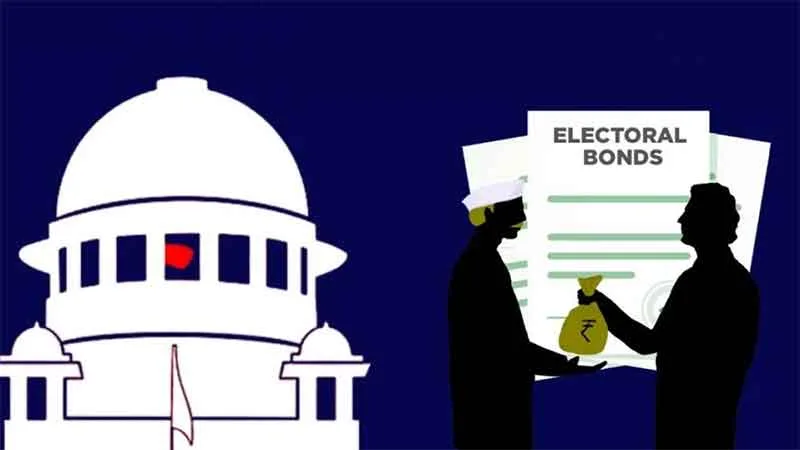
The recent disclosure by the Election Commission of India sheds light on the intricate web of financial transactions underlying political funding in the country. Two crucial PDF documents uploaded by the Election Commission present a datewise breakdown of bond purchases by companies and individuals, as well as a corresponding list of bonds redeemed by political parties. While matching these lists is essential, the disclosed information unveils significant insights into the flaws within India’s democratic framework.
Revelation of Top Donors: An Eye-Opening Analysis
Examining the top 50 donors, categorised by holding company/promoter and their respective sectors, reveals startling revelations. The top 20 donors, predominantly companies, collectively contribute to nearly half of the bonds purchased. Of notable mention is Future Gaming, a relatively unknown company, emerging as the single largest donor with a contribution of Rs 1,368 crore. This revelation raises concerns regarding the influence of obscure entities in political financing, highlighting the need for transparency and accountability.
Electoral Bonds: A Failed Promise of Transparency
Introduced in 2018 with promises of enhancing transparency in political financing, electoral bonds have failed to deliver on their intended purpose. Criticised by various stakeholders, including the Reserve Bank of India and the Election Commission, the delayed recognition of the scheme’s illegality by the Supreme Court underscores the magnitude of the issue. The lack of clarity regarding the source of funds sloshing through electoral bonds further exacerbates concerns surrounding the integrity of India’s electoral process.
Sectoral Analysis: Unveiling the Power Dynamics
A closer examination of the list reveals a significant presence of companies operating in sectors such as infrastructure, mining, real estate, and gaming. These sectors, characterised by extensive government discretion, indicate a correlation between political contributions and favourable policies. Prime Minister Modi’s policy alterations to accommodate businesses in these sectors raise questions about the influence of corporate entities on government decisions, at the expense of the marginalised.
Regional Dynamics: Quid Pro Quo in Political Landscape
The revelation that corporate donations extend beyond the ruling Bharatiya Janata Party (BJP) to other regional parties highlights the prevalence of quid pro quo politics. The significant contributions to parties governing states such as West Bengal, Odisha, Tamil Nadu, and Andhra Pradesh underscore the widespread influence of corporate entities on regional political dynamics.
Investigative Concerns: Electoral Bonds and Commercial Contracts
Emerging evidence suggests a nexus between electoral bond purchases and the procurement of lucrative commercial contracts. However, comprehensive investigations into these allegations remain elusive, necessitating cooperation from financial institutions such as the State Bank of India (SBI) to uncover the intricate linkages between companies and political parties.
Call for Transparency: Demands for Investigation
The revelation of electoral bond data has triggered widespread calls for transparency and accountability in political funding. Congress President M Mallikarjun Kharge has demanded a special investigation into the electoral bonds scheme, advocating for stringent measures to hold political parties accountable for their financial transactions.
International Scrutiny: Global Attention on Indian Electoral Funding
The international media’s coverage of the electoral bond controversy has brought India’s political financing dynamics under global scrutiny. The Financial Times highlights the involvement of dubious entities, such as Future Gaming, in significant political donations, signalling broader concerns regarding transparency and integrity in India’s electoral process.
Conclusion: A Call for Transparency and Accountability
The disclosure of electoral bond data underscores the urgent need for transparency and accountability in political funding. As stakeholders demand thorough investigations and stringent measures to curb illicit financial transactions, the controversy surrounding electoral bonds serves as a wake-up call for reforming India’s electoral financing mechanisms. Only through concerted efforts to foster transparency and accountability can India uphold the principles of a robust and democratic electoral system.
Mohd Ziyauallah Khan is a freelance content writer based in Nagpur. He is also an activist and social entrepreneur, co-founder of the group TruthScape, a team of digital activists fighting disinformation on social media.”











































